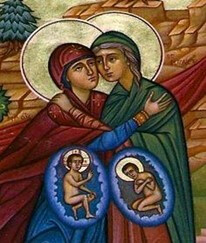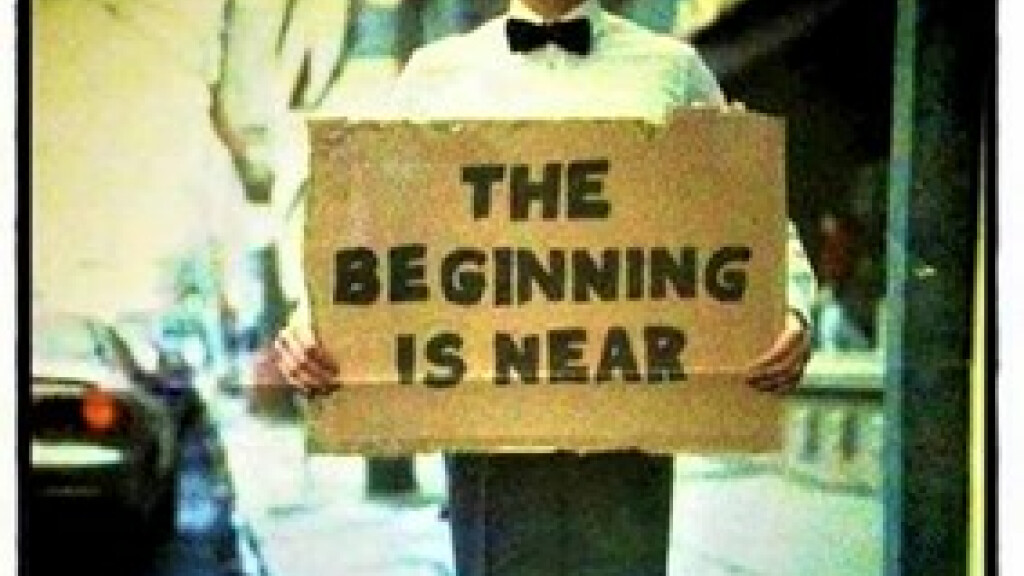December 17, 2023 | Rev. Loren McGrail
Mary Knew and Sang About It
Luke 1:41-55
Rev. Loren McGrail
Holmdel Community United Church of Christ
December 17, 2023
Mary did you know
that your ancient words
would still leap off our pages?
Mary did you know,
that your spirit song
would echo through the ages?
Did you know that your holy cry
would be subversive word,
that the tyrants would be trembling
when they know your truth is heard?
Mary did you know,
that your lullaby
would stir your own Child’s passion?
Mary did you know,
that your song inspires
the work of liberation?
Did you know that your Jubilee
is hope within the heart
of all who dream of justice,
who yearn for it to start?
The truth will teach, the drum will sound, healing for the pain
The poor will rise, the rich will fall. Hope will live again.
Mary did you know,
that we hear your voice
for the healing of the nations?
Mary did you know,
your unsettling cry
can help renew creation?
Do you know that we need your faith,
the confidence of you,
May the God that you believe in,
be so true.
Lyrics by Jennifer Henry
Advent is a time of hope, a time for dreamers, for prophets and angels, and for revolutionaries. Mary, the unwed Palestinian Jewish teenager is all of these. She was a woman who despite her fear said, “Yes” to God’s invitation to become the servant of God’s peace.
This Gospel story from Luke reminds us that for us to live into God’s promise we must live in a community of people who can affirm, deepen, or strengthen our faith. This is why Mary traveled so far and risked so much to be with her cousin Elizabeth. The peasant girl Mary traveled to the borderlands of Palestine, Roman occupied territory complete with checkpoints and patrols, surveillance, and ethnic profiling. She traveled to a country where people were over -taxed and living in terror. Then she spent three to four months with her elderly cousin eating and gossiping and encouraging each other into accepting the improbable motherhood happening to both of them. They blessed each other and the babies leapt with joy in their wombs.
Elizabeth’s miraculous pregnancy at age 90 helped Mary accept her own miraculous birth story. Their holy conversation led Mary to sing out a song of praise about the reversal or restructuring of the world’s political, social, and economic order; “He has brought down the powerful from their thrones and lifted up the lowly; He has filled the hungry with good things and sent the rich away empty.”
Mary’s Yes is a song of liberation. She sings of a new creation that has already begun. She invites us to join her. Mary, the mother of Jesus, full of grace, the unwed mother, the political refugee, the homeless one, the friend, the prophet, invites us to find our Elizabeth so we can bless one another into creating a new world order based on a disdain for power that diminishes or destroys, a new earth based on divestment of wealth and status and re-establishes the sharing of resources. She invites us to see ourselves as both as the one who blesses and the one who can receive the blessing.
Dear Ones, it’s time to sing Mary’s joyful yes. It’s time to celebrate God coming to be born in each of us. Each year we remember that this baby born in Bethlehem came from a young teen age girl who may or may not have been sexually abused by a Roman soldier, but who was nonetheless full of grace and courage. But, Dear Ones, did you know Mary was a revolutionary too, that she knew who she was birthing?
Dietrich Bonhoeffer says that the Song of Mary is the oldest Advent hymn: “It is at once the most passionate, the wildest, one might even say most revolutionary Advent hymn ever sung…These are the tones of the women prophets of the Old Testament now come to life in Mary’s mouth.”
Some scholars think that the Magnificat comes out of the long history of political struggle of the Jewish people against their oppressors.
Richard Horsely believes that the Galilee was the spawning ground for 1st century revolts against the repressive Roman occupation and that this is a victory song turned into a song of revolt. Could this be why missionaries in Africa were forbidden to share it with their converts or why it was banned in India during the British colonial period?
The Song is also dangerous because this image of Mother Mary challenges our vision of women as submissive to authority. Could this be why Women of the Disappeared in Chile used it as their mantra? Mary’s Yes to solidarity with God’s project led her to say No to oppression and domination of all kinds.
It is for these reasons that she has become the image of the woman of faith. It is her faith in things not seen, and in her ability to submit with her life for the future liberation of her people that we lift her up and call her blessed among women. "Blessed is she who believed that there would be a fulfillment of what was spoken to her" (Luke 1:45).
Mary invites us all to find our song and sing it so we can prepare the way for the birth of love and justice. Mary says we should expect that this birth will turn our lives upside down and inside out. She asks us to pray for a world without war or conflict or violence. She asks us to hold our leaders accountable for their actions and inactions---their thoughts and their deeds, their votes of support and their votes against dignity and freedom. She asks us to divest from and boycott their stranglehold of economic, social, and political power. She asks us to feed the hungry by lifting their sieges, shaking off their occupations, calling for a Ceasefire. She asks us to dream about the way the world would look if things were reversed, or if the Beloved Community could be made manifest. She asks us to dream it in the past tense as if it were already taking place now.
Finally, Mary, the mother of Jesus, asks us to affirm God being born not only in her real womb but in ours and in the womb of human suffering. She asks us to imagine, to sing, and work to make it so.
Series Information



